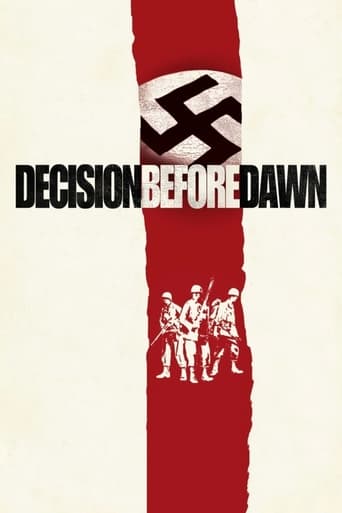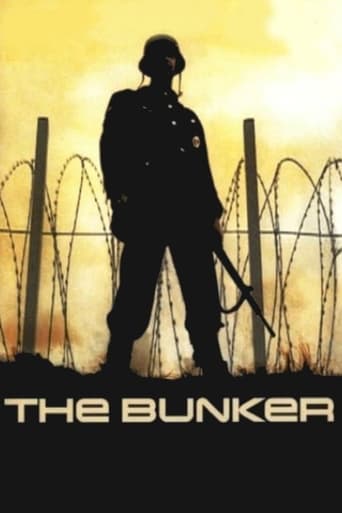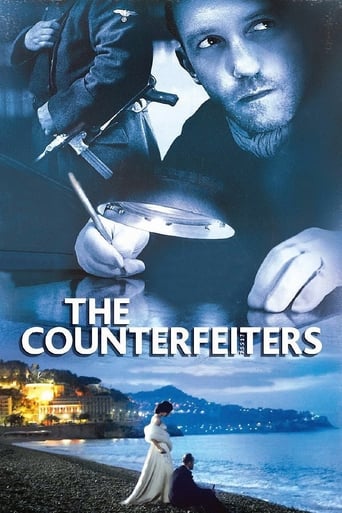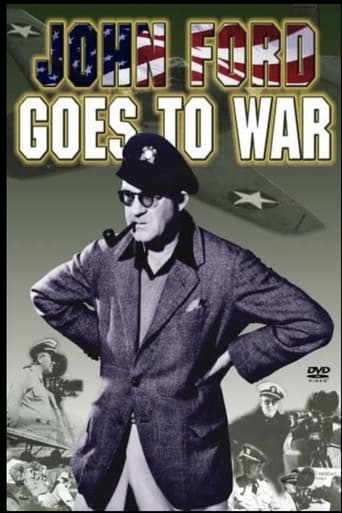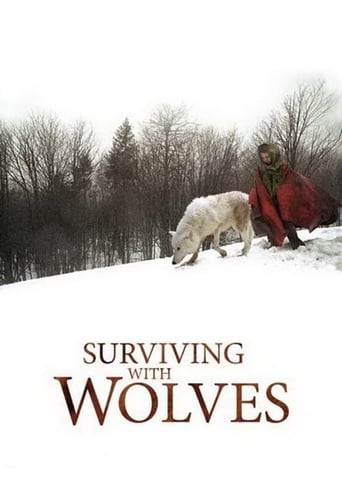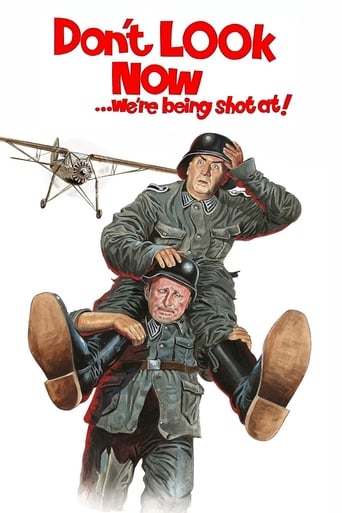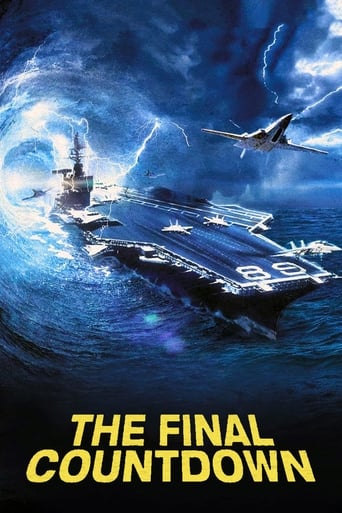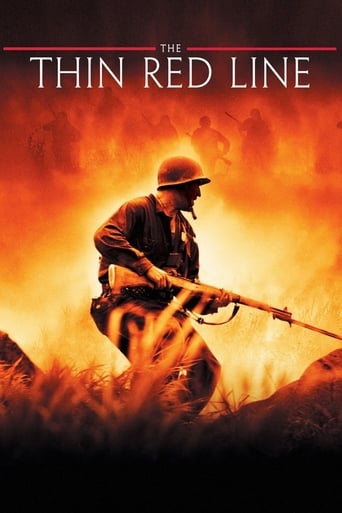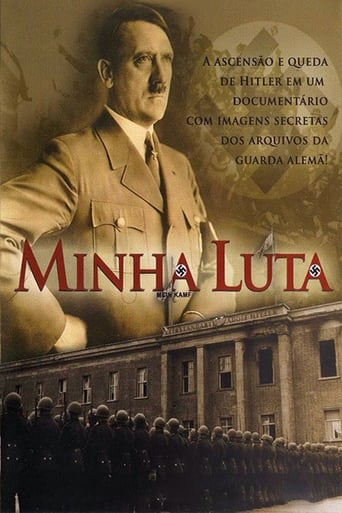

Mein Kampf (1960)
"Mein Kampf" presents the raising and fall of the Third Reich, showing mainly the destruction of Poland and the life Hitler, which is told since he was a mediocre student and frustrated aspirant of artist living in slums in Austria and Germany, until his suicide in 1945 after being the responsible for the death of million of people, and the destruction of Europe. All the footage is real and belonged to a secret file of Goebbels, inclusive with many very strong scenes filmed by Goebbels himself.
Watch Trailer
Cast
Similar titles
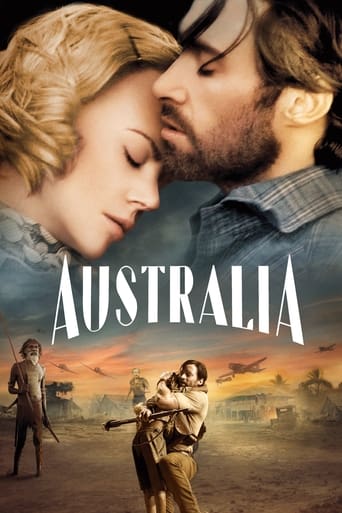
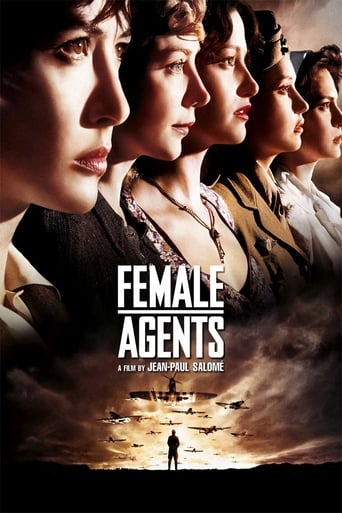
Reviews
I like the storyline of this show,it attract me so much
That was an excellent one.
Good movie but grossly overrated
At first rather annoying in its heavy emphasis on reenactments, this movie ultimately proves fascinating, simply because the complicated, highly dramatic tale it tells still almost defies belief.
Mein Kampf is a rather disjointed documentary giving heavy emphasis to Hitler's rise to power and the occupation of Poland, subjects that probably deserve their own films. If the same story with variations was told in the same length of time about each occupied country we'd have a 9 hour film.Two things this documentary had going for it that I liked. It gave the best account I've seen of Adolph Hitler's years of the development of the Nazi party and how it grew. That part ought to be required viewing in America, it will seem frighteningly familiar as to what is happening now.The other thing is a lot of previously unseen, at least by me of footage that none other than the Propaganda Minister was responsible for. Some even which Joe Goebbels shot personally. With minimal commentary they tell their own tale of the Third Reich.Heartbreaking in the footage of the Warsaw ghetto were the lamentations in Hebrew. No other words were needed.Not the best told tale of the Third Reich but good enough.
"Den blodiga tiden", which is also known under the title of Hitler's autobiography "Mein Kampf", is a Swedish/West German co-production from 1960, so it had its 55th anniversary last year. Languages are German (Paul Klinger narrates) and Swedish according to IMDb, but there is also an English-language version out there, probably others as well. As it was made in 1960 and deals with the events from 20 years earlier even, this is of course a black-and-white movie and this documentary runs for 110 minutes approximately. I must say I have seen many documentaries and feature film (with acting and fictitious elements) and this is why the movie we have here did not really teach me anything new. But of course you have to say that the other stuff I watched is newer perhaps, so this one here may have come first in many comparisons. The writer and director is Berlin-born filmmaker and these almost 2 hours are probably his most known work from what we know today. What else can be said here. There is a bit of everything in here, but not a really great deal of depth which is why I guess it makes for an okay watch, also for people with not too much interest in the years of Nazi Germany and World War II. But I maybe wrong with this assumption too as I have a great deal of interest, but others who have different priorities may very well be bored. I am not sure. Lets just say the concept and action aren't too complicated for general audiences from all age groups, except the very little ones. As a whole, I do not have too many criticisms. It has some interesting references, even if the narration could have been better and sometimes it feels very cold and unaffected and some may say it's accurate for the subject. It has to do with personal perception and subjective liking I guess. All in all, I give this film a thumbs-up and recommend checking it out.
While competently put together, this film is woefully short on details. It is possible that by 1960, the year this film was made, there simply wasn't the wealth of information available about this point in history that there was in later years, but this is unlikely. Of what they do show, the viewer is left with the distinct sense that so much more is there for the telling. The invasion of France is given barely a sentence. The focus mainly stays on Hitler's rise to power and then shifts mainly to the occupation of Poland. This, in and of itself, is not problematic, but perhaps the film should have been just about that one particular aspect of the war. By trying to cover everything, so much is missed that a disservice is done to the audience. Additionally, the opening crawl which sets out the editorial bent of the feature does not age particularly well. We don't need to be told Hitler was a monster, nor that he was one of us, a human being. This kind of theatricality seems to undermine the dark subject matter which is eventually revealed.Still, this documentary accomplishes much. It still contains some of the most jarring and unforgettable war imagery of any documentary film ever made on this subject. In particular, the Nazi-shot footage of the Warsaw ghettos, the scenes of the concentration camps, the kangaroo court, down to the raving Nazi judge, which Germany used to justify the mass murder of Hitler's traitors, as well as some incredible footage of the razing of major cities which were pivotal turning points of the war: Warsaw, Berlin, and Stalingrad. The atmosphere during various Hitler speeches is also very well-captured and gives a sense of the gravitas with which he seemingly hypnotized an entire nation. For these scenes alone, the film is absolutely worth watching.That being said, the almost tabloid approach to the content and heavily editorialized narration dampens the credibility of the picture almost from the word go. The definitive WWII documentaries are still, nearly forty years since their release, the "World at War" films, narrated by Laurence Olivier, which aired in Britain in 1973. In twenty-six separate parts, they have the time to truly investigate and attempt to make sense of humankind's worst and most violent protracted affair. Directed in far less a heavy-handed fashion than Mein Kampf, they set a gold standard which has still not been touched.If you are NEW to WWII study, Mein Kampf is a perfectly adequate start. But it does not go nearly deep enough. Start here, and keep going.
"Mein Kampf" presents the raising and fall of the Third Reich, showing mainly the destruction of Poland and the life of Hitler, which is told since he was a mediocre student and frustrated aspirant of artist living in slums in Austria and Germany, until his suicide in 1945 after being the responsible for the death of millions of people, and the destruction of Europe. All the footages are real and belonged to a secret file of Goebbels, inclusive with many very strong scenes filmed by Goebbels himself. It is impossible not crying with the scenes of the Jews in the ghetto of Warsaw and in the concentration camps. When a viewer sees a movie such as "Schindler's List", for example, he or she knows that the characters are fictional, and they are actors and actresses using make-ups or edited using computer effects in the present days. However in "Mein Kampf", when you see a person, he or she is real; her bones, the flies around the wounds are reality! This documentary is a magnificent, impressive and depressive lesson of history, and should be mandatory in any school worldwide. It is ironical when we see the following introduction: "As human beings, we are responsible for what he did for he was one of us and we permitted this to happen. May we be wise enough and strong enough to prevent this from ever happening again." Or when the narrator advises in the end of the documentary that these things should never happen again. When I see on TV what is happening in Iraq or Palestine, just to mention recent examples, I really lose my faith in the human race. It is sad to see what mediocre, but powerful leaders, can do with mankind! Just as a reference, another magnificent documentary about Adolf Hitler is "Undergångens Arkitektur", and a great movie to see what happened with the megalomaniac dream of Hitler and the fate of Berlin and Germany is "Germania Anno Zero". My vote is ten.Title (Brazil): "Minha Luta" ("My Fight")

